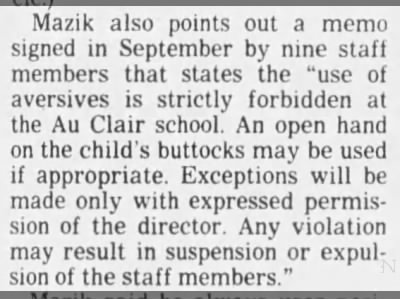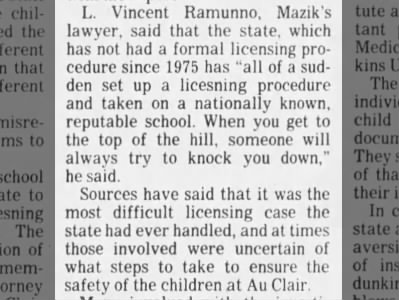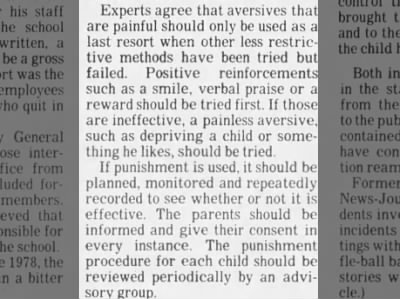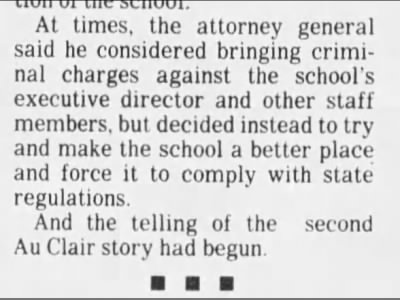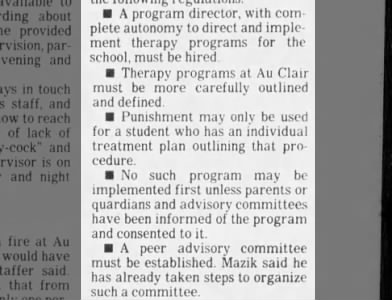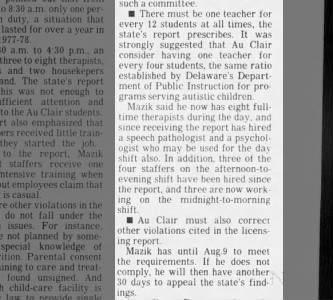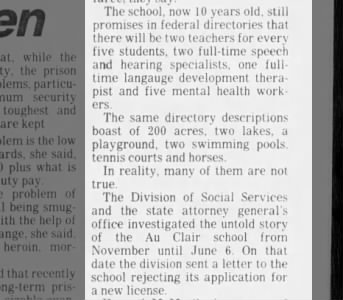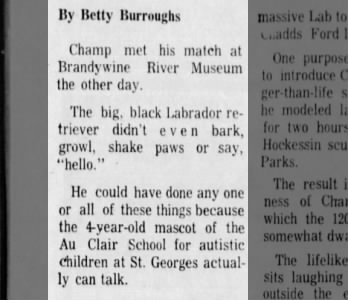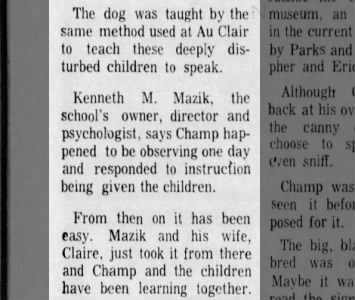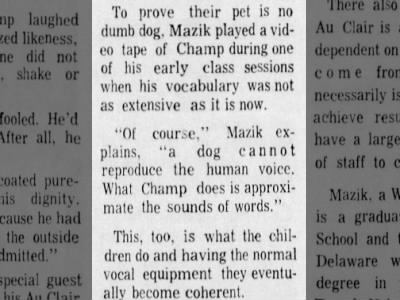I am compelled by my devout advocacy of special education to spread the hallowed words that will later follow. For now, just read along for the ride - I am a Catholic-turned-Agnostic by the sins of an Episcopalian Preacher. With my Jewish family, I practice our culture, with my Catholic family we practice our holidays in a way that is meaningful for family. I am committed to raising my children with a healthy sense of ethics, that we do not need to believe in a heaven to compel us to commit good acts for our family, community, and world nor should we be frightened by a hell to prevent us from becoming criminals, racists, bigots, misogynists, Trumpets etc. I have found often in my years that the aforementioned often hide behind the cloth.
So I have chosen to be an Agnostic.
Definition of Agnostic - a person who believes that nothing is known or can be known of the existence or nature of God or of anything beyond material phenomena; a person who claims neither faith nor disbelief in God.
And yet, last night, I felt compelled by something more than just my ethics to reach out to the good paster Chuck Betters. A divinity penned these words through facebook messanger -
Pastor, no need to respond, but as a concerned special needs parents, i want to remind you that it was Jesus who said bring the children to me. He didn't say bring the perfect children, the easy children, the lesser disabled children. He said bring the children and meant them all. Did he ever turn a leper away? or a whore? No. Yet, you like a false prophet have turned your back on a child who NEEDED you and looked to find our lord's compassion through you and those you entrusted him unto. You have turned him away from the lord. I am certain that Jesus's eyes are filled with tears.
Do I believe my own words? In the small of my heart, in the tips of my fingers, I am certain that if there were a God, any god, Pastor Betters has allowed a grave sin to be committed upon a child and upon that god. Let there be hell. In the part of me that believes we cannot ascertain the phenomena of God, I know a truly ethical violation has occurred between a man and his contract with humanity, that Newton's Laws of Physics has taught me that for every action there is an equal but opposite reaction, and that energy can neither be created nor destroyed, it can only be transferred. And I can trust that either nature or god will out met punishment upon those who would commit crimes against children.
When I awoke this morning, I was stirred early, on this, the one day of the week where usually I tuck down into my blankets and wish my kids self-sufficiency and that my darling husband can meet the needs they present.
This morning, before the church mouse could stir (or rather the house cats) I was at my computer...searching. Researching, really, my next advocacy project (the Otters are thriving, and the Hi-Five Playground is open) meeting the need for short-term mental health ped and aldo beds for children with autism and similar behavioral disorders at our state's premier children's hospital. (I digress, that post is coming at a later date.)
But, I found myself back at my blog with the compulsion to repost the first thing I read today:
A Special Article For The Longwood Foundation
This article is addressed specifically to the Longwood Foundation, but I am making it public. So if you have the ability to make sure Longwood sees this, please do so.
My son has Tourette Syndrome which comes with several co-morbidities, which are accompanying disabilities. Tourette Syndrome is often misunderstood. It is relatively rare and very tricky. After sending my son to a Delaware charter school, a traditional school district, and another private school, my wife and I were faced with a decision: homeschool. As fate would have it, a friend of ours recommended a homeschool/co-op program called Journey located at Glasgow Christian Academy in Bear. We interviewed and found it would be an excellent choice for our son. Journey is non-inclusive and caters to children with special needs. His first year there was awesome. He felt like he belonged and it showed. He was happier and more at peace with himself.
In August, I received a call from a woman at the Glasgow Christian Academy/Tall Oaks/Red Lion Christian private school conglomerate. My son (until today) attended the Journey Program at Glasgow Christian Academy. The rep from the schools was working on a grant with the Longwood Foundation for the Journey program. I was recommended as someone to help with the grant based on knowledge of special education in Delaware public education.
I let the woman know that the Journey program was excellent, and it was the first time my son felt like he truly belonged in an educational setting. Journey is non-inclusive in that it is just for children with disabilities. Most of these children, for some reason or another, couldn’t make it in public schools. I’m sure you received the application. A lot of the information on that grant application came from me. I pointed the woman in the right direction to look for statistics from the Delaware Dept. of Education. I advised her of the plethora of lawsuits in Delaware because children with disabilities were having their rights denied. But I said these children have been through hell but Journey looked like a place where these children could finally flourish and grow. These are children whose parents can’t afford the $26,000 to send their child to the Pilot School.
I’ve been rough on Longwood in the past due to their funding of charter schools in Delaware. I have always felt that charters either do not want special needs kids or they don’t know how to accommodate them. Not all of them, but enough. One only has to look at their demographics and this is well understood. But I didn’t want my experiences, and those of thousands of other Delaware school children who have experienced at Delaware charters, to take away from funds for the Journey program. It began with a woman who cares very deeply for special needs children and has some of her own.
I advised the grant rep for the schools about the problems with Delaware special education. How a one size fits all mentality in public schools has affected students with disabilities the most. I let her know about the Delaware DOE’s growth goals for students with disabilities on the Smarter Balanced Assessment and how these students would be expected to “grow” the most on a test that is already flawed to begin with. I let her know about the issues with charter schools in Delaware and how some seem to cherry-pick the best and brightest students. But I did advise her she may not want to focus too much on that with a grant to the Longwood Foundation. She thanked me for my help, and I was really hoping the Journey program would get this grant.
No education setting is perfect. I always wanted inclusion for my son, but this program worked for him. It worked for many of the kids involved. Did it cure them of their disabilities? No. Education can’t do that. Did they manifest those disabilities? Sure. That’s like telling the sun not to be so bright in the middle of the day. But after going through a Delaware charter school, a traditional school district, and a regular “Christian” private school, all in the space of five years, not to mention the homebound during the charter school because they didn’t want to give him an IEP, or the homebound after the school district when he got a concussion after eight other physical assaults, this program worked for my son.
Then this year happened. Due to medical issues, the woman who began the program was not able to be there. Teachers and support staff, in and out. my son’s behavior escalating. The support staff was now the teacher. Then the new support staff became the teacher. Then the teacher became support staff when a new teacher was hired. Someone with all this vast knowledge of special education but didn’t know the first thing about Tourette Syndrome, the disability my son has. Then the original support staff came back. Somewhere in the middle of all this, Head of School Dr. Tim Dernlan, the one in charge of these three Christian schools, decided to actually take a look at the program. He met with parents, listened to their concerns, and promised changes. Meanwhile, he is meeting with me about a behavior issue with my son. Which I’ve heard numerous conflicting stories on, but I digress. I encouraged him to look into Tourette Syndrome and advised him if you treat it like other disabilities, you won’t get the results you think you will.
The weeks went by, things seemed to be getting better. My son would have issues but nothing was told to me that constituted issues that were outside of the scope of his Tourette Syndrome. All students in the program had Parent/Teacher Conferences last week and this week. We had ours last Friday. It started off okay until the teacher just started rattling off issues with my son. Things that weren’t told to us earlier in the week, which was always done in the past, but they decided to wait since we were having this conference. At this point Dr. Dernlan recommended my son leave the room to which we all agreed. Then the bomb drop: we don’t want your son back. We can’t service him. I didn’t hold back. Neither did my wife. You have a special needs program, designed for students with disabilities, and you can’t handle my son? Seriously? In my son’s class there are now 3 students, a teacher, and support staff. And you can’t handle my son? When we asked how much he knows about Tourette Syndrome, after hemming and hawing, he said he took a “cursory” glance at something. The teacher had not looked at anything. So you want to sit there and tell me you can’t “service” my son, after we paid their tuition for the whole year, and you aren’t willing to do more than do a “cursory” glance at my son’s disability? Or see valuable information and recommendations for the classroom, which should be infinitely easier with a student to teacher ratio of 3:2? Are you kidding me? Furthermore, neither the Head of School or the teacher bothered to even look at his introductory interview profile which would have told them valuable information. My wife and I were not happy and we spoke loudly and uttered some very not nice words. Furious parents of special needs children will do this when they are presented with no choice options.
Since this happened, I wrote about what happened with my son on Facebook. The Pastor of Glasgow Church immediately came on my Facebook page to defend the Head of School vigorously without a care in the world for my son. In his defense of his Head of School, he never uttered any words about forgiveness or “turning the other cheek”, as I would expect from a Christian pastor. Instead, I was subjected to numerous and ongoing legal threats coming from this man. But I will tell my son’s story and what he has gone through. Pastor Chuck Betters and his employees can cast my son out of their mold, but I find that is not a mold I wouldn’t ever want my son to belong to. I find all of this ironic given what Betters had to say about the election earlier this year:
Trump: “When someone crosses you, my advice is ‘Get Even!’ That is not typical advice, but it is real life advice. If you do not get even, you are just a schmuck! When people wrong you, go after those people because it is a good feeling and because other people will see you doing it. I love getting even. I get screwed all the time. I go after people, and you know what? People do not play around with me as much as they do with others. They know that if they do, they are in for a big fight.”
Jesus: Matthew 5: 38-40: 38 “You have heard that it was said, ‘An eye for an eye and a tooth for a tooth.’ But I say to you, Do not resist the one who is evil. But if anyone slaps you on the right cheek, turn to him the other also. And if anyone would sue you and take your tunic, let him have your cloak as well.”
Here is the bottom line: they didn’t want to “service” my son because he doesn’t fit their mold. They want obedient and subservient kids who listen all the time. You can’t turn disabilities on and off like a light switch. You can’t just tell a kid with the disabilities my son has to stop and expect them to listen. Any special education teacher (if you are truly trained in special education) would know this. In fact, the greatest recommendation for a child with Tourette Syndrome is to ignore the actions or words and not force a confrontation. The child won’t get upset and the situation won’t escalate. There are techniques for these kind of things, but if you aren’t willing to truly understand how to even look for them, then you should not be running a special needs school. Many of the parents who are making the choice to send their children to this program were promised many things. Last year, those promises were upheld. This year? They evaporated.
Special education has a lot of misconceptions. Especially when it comes to the parent role and that of special education attorneys. Many are under this mistaken perception that special education troll parents and can’t wait for them to come to them. Nothing could be further from the truth. Ask any parent if they would rather sue or have their child have a peaceful experience at school, and you will find they always go for the latter. Transitioning special needs children from school to school is a very traumatic experience for our kids. It isn’t an easy thing. Many assume special education attorneys troll special needs parents and look for a moment to strike at schools. This is a huge misconception. And I’m going to tell you a little secret about these attorneys. Many schools believe complaining about a child’s behavior is their best defense. It is the complete opposite. It is their greatest weakness.
My bottom line is I do not recommend granting the Journey program a grant from your organization. The woman who started this program is no longer there as of today. She had a great program but for some reason upper management decided to change it into something different. I fear for the possibility of the program growing, when the people in charge don’t seem to have the ability or even a need to understand the children that are already there. And to expel students for being who they are goes against the very foundations of a Christian church. Perhaps their other non-special education classes are superb. I don’t know enough about that. And perhaps their head of school is the greatest leader in the world for those schools. But for this program, it is not what it was. It is not even close to the spirit of the original intention for this program.
Pastor Betters has chosen to take a stand against me on this. He is threatening to sue my family for speaking the truth about my son’s experience. I say let him sue. He won’t get much. My family doesn’t have much. But what I do have is a faith in God that He is looking out for me and my family and he has charged my wife and I with being his voice, and those of other children with special needs.
Disabilities are on the rise in Delaware. More than we can possibly fathom. Projections for disabilities in America are astonishingly high with some reports suggesting kids with disabilities will reach 50% in the coming years. In Delaware, we are well over 15% but that doesn’t include students who are not in the public school system or have needs that prevent them from having any education. Our public schools can’t handle it, charter and district alike. It has become a crisis and we are at a tipping point. I would highly suggest that the Longwood Foundation only sends funds to schools that are willing to help all students, especially those with the highest need. We may disagree on a great many things, but I’m sure we can agree money should not be given to organizations who do not deserve it. Private schools are not beholden to any laws around federal IDEA. They can do what they choose since they don’t receive those funds and rely on tuition. So for a parent who is promised the world but that world collapses, it puts that child in a very precarious situation. Thank you. https://exceptionaldelaware.wordpress.com/2016/11/20/a-special-article-for-the-longwood-foundation/
Elizabeth Scheinberg is a special education advocate who writes when the spirit moves her,
when the twist is tantalizing and deserves an airing, when a great need is unmet, when democracy demands it and sometimes foregoes writing when being mom exceeds any other.
